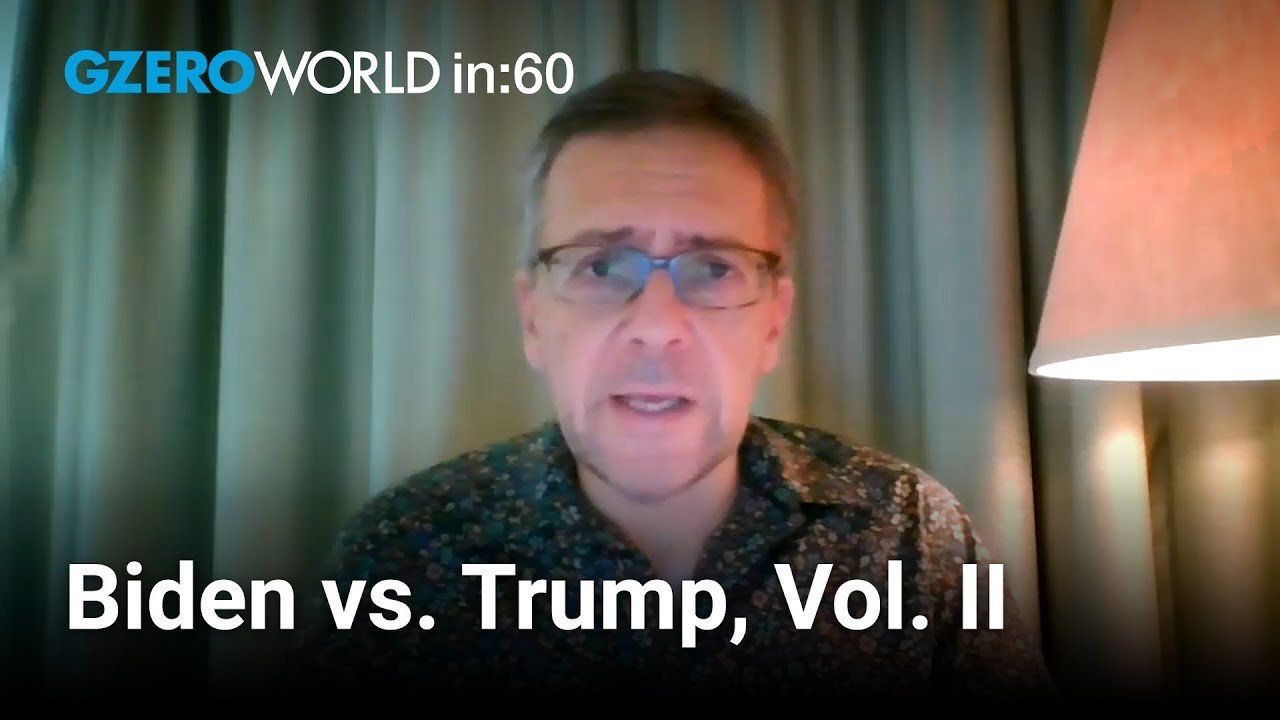Ian Bremmer shares his insights on global politics this week on World In :60.
Any surprises from Super Tuesday
Yeah, I was surprised that Nikki Haley got Vermont. Honestly, I thought that she'd get swept by Trump. Though Vermont is a tiny, tiny little state. It still counts, but she's still out. She's, of course, suspended her campaign and that is not a surprise. And Biden beat undecided and Dean Phillips, who is basically the equivalent of undecided, pretty decisively in all of his states. So, yes, unless something happens health-wise to either of the candidates over the next months, it is Biden, and it is Trump, and that is it. And we've known that for a good long while now. It doesn't feel so super. It's not what everybody wants, but we still have months and months and months in the world's longest and most expensive election in the world. Yet one more reason why the United States is the most powerful and super dysfunctional democracy.
Is the Red Sea turning into a Houthi stronghold?
I wouldn't say that the Houthis are significantly degraded in their military capabilities by the United States and the UK over the last month now. They are not getting the same level of support, intelligence wise, from the Iranians that they were in previous months. So they are still getting the weapons. Some of those weapons are getting interdicted by the United States and allies. But they are still engaging in strikes in the Red Sea. And that, of course, is making it harder for ships to get through. And it's increasing costs on commodities and it's disrupting supply chains. That's where we are. That's likely to continue. But again, I wouldn't call it a stronghold. The one country that's really hurt in all of this is Sudan, which is experiencing the worst humanitarian crisis in the world right now. And it's made worse by the fact that you can't get any aid through the Red Sea because the Houthis are blocking it.
As the Israel-Hamas war nears the five-month mark, is a cease-fire likely?
Well, Hamas is demanding a permanent cease-fire as part of the terms of getting an agreement with Israel that is absolutely not on the table. Can we get a short-term cease-fire, a six-week cease-fire? I am still optimistic, but I'm telling you, it is getting more challenging. And if Netanyahu is really angry at Benny Gantz for being more solicitous with the Americans and the Brits, and traveling to those countries to engage in diplomacy when Netanyahu told him not to go and when he told the Israeli embassy in those countries not to support him, the potential that you end up not getting a deal because of the Israeli dysfunction in their governance and Hamas continuing to kick the can and put ideas on the table that are absolutely unacceptable to the Israelis, that makes it harder. So I do think that the potential is all falls apart, is creeping up. But if you make me bet by next week, I still think on balance we get a deal. Anyway, let's be hopeful for that.
More For You
In this Quick Take, Ian Bremmer weighs in on the politicization of the Olympics after comments by Team USA freestyle skier Hunter Hess sparked backlash about patriotism and national representation.
Most Popular
100 million: The number of people expected to watch the Super Bowl halftime performance with Bad Bunny, the Puerto Rican superstar and newly minted Album of the Year winner at the Grammys.
Brazilian skiers, American ICE agents, Israeli bobsledders – this is just a smattering of the fascinating characters that will be present at this year’s Winter Olympics. Yet the focus will be a different country, one that isn’t formally competing: Russia.
What We’re Watching: Big week for elections, US and China make trade deals, Suicide bombing in Pakistan
Japanese Prime Minister Sanae Takaichi, president of the Liberal Democratic Party (LDP), appeals for a candidate during a street speech of the House of Representatives Election Campaign in Shintomi Town, Miyazaki Prefecture on February 6, 2026. The Lower House election will feature voting and counting on February 8th.
Japanese voters head to the polls on Sunday in a snap election for the national legislature’s lower house, called just three months into Prime Minister Sanae Takaichi’s tenure.
